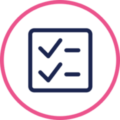The UK Curriculum: Broad and Balanced
Divided into four ‘key stages’, the UK curriculum sets out the subjects that all children should be taught in England, as well as the standards they should reach within those subjects.
All schools that are local-authority-maintained – that is, state-funded or public schools – must teach the national curriculum. Each school’s curriculum must promote the spiritual, moral, cultural, mental and physical development of pupils, and prepare them for the opportunities, responsibilities and experiences of later life.
Other types of schools such as academies and private schools do not have to follow the UK curriculum but must teach English, maths and science as part of a broad and balanced programme of study.
Sex education and religious education are compulsory subjects too, however parents do have the option to withdraw children from these classes. Students can withdraw themselves from religious education once they are 18.
What are the key stages of the UK curriculum?
Given the rapid physical and psychological change that young people undergo, educational milestones are used to mark this developmental journey. These are called key stages in the UK curriculum and each has a framework of learning to be delivered by schools.
From the ages of 3 to 5, children are in the Nursery and Reception Years which are more commonly known as the Early Years Foundations Stage (EYFS).
Key Stage 1: Years 1 to 2 (5-7 years old)
For primary school learners, the national framework document sets out the compulsory learning at each stage. There is a strong focus on numeracy and mathematics, as well as literacy and language instruction. To complement the core subjects of English, mathematics and science, students are also taught art and design, computing, design and technology, geography, history and physical education.
Key Stage 2: Years 3 to 6 (7-11 years old)
In addition to the subjects specified in Key Stage 1, students in Years 3 – 6 will learn a language. Many schools will offer foreign language teaching earlier but it becomes compulsory at Key Stage 2. This learning represents an exciting opportunity for students to open doors to new cultures and deepen their understanding of the world.
Key Stage 3: Years 7 to 9 (11-14 years old)
Sometimes called Lower Secondary School, students will cover Key Stages 3 and 4. While the subjects offered at Key Stage 2 continue, students take the additional subject of citizenship. This represents the increasing importance of political and social awareness.
Key Stage 4: Years 10 to 11 (14-16 years old)
In Key Stage 4, the list of compulsory subjects shrinks significantly, representing a shift to deeper learning in fewer subject areas as students prepare for the next stage of education at College (also commonly called ‘Sixth Form’)
How does the UK curriculum transfer to qualifications?
Well-known globally for its rigour, learners will study for the GCSE (General Certificate of Secondary Education) at the ages of 14 – 16, during Key Stage 4. The qualification is highly valued by schools, colleges and employers and is available in over 60 subjects and vocational areas.
The theory of a subject is the main focus of the qualification, which is supported with some investigative work. Practical work can also feature in the GCSEs for certain subjects.
At Key Stage 4, the curriculum shifts from broad to narrow. For those students considering higher education, GCSEs in certain curriculum subjects may be required. Most universities and colleges will ask for five GCSEs grades A*- C, including English and maths, as well as A levels or comparable qualifications.
See how EP can support teachers and students working in the UK curriculum or preparing for GCSEs.
Help your students excel with fun and engaging teaching software

35,000+
Curriculum aligned lessons

10,000+
Learning videos

24/7
24/7 Personal Support

50,000+
Automatically Marked Questions
35,000+
Curriculum aligned lessons
10,000+
Learning videos
24/7
24/7 Personal Support
50,000+
Automatically Marked Questions

